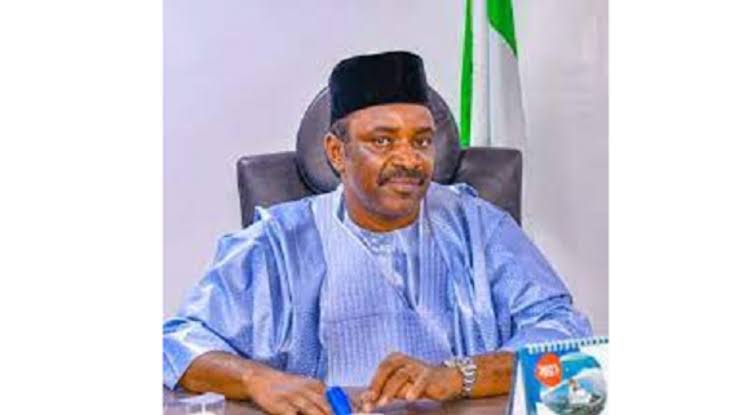Transportation is the Engine of Nigeria’s Economy, Says Minister Alkali
Transportation is the Engine of Nigeria’s Economy, Says Minister Alkali
By Achimi Muktar
The Nigerian government has reaffirmed its commitment to positioning transportation as a cornerstone of national economic development. Senator Said Ahmed Alkali, Minister of Transportation, emphasized the sector's critical role during a weekend visit by Dr. Toks Omishakin, California State Transportation Secretary, in Abuja.
Alkali underscored the importance of transportation in driving Nigeria’s economic growth, noting its contributions to facilitating the movement of goods, people, and raw materials, as well as its significant impact on the country’s Gross Domestic Product (GDP).
"Transportation Powers Nigeria’s Development"
With a population exceeding 250 million people spread across more than 900,000 square kilometers, Alkali highlighted the necessity of robust transportation infrastructure for sustainable national progress.
“Transportation is not just a means to an end; it is the backbone of economic stability and development,” the minister said. He added that the administration's Renewed Hope Agenda prioritizes transportation as a way to improve the quality of life for Nigerians.
A Longstanding Partnership
Welcoming Dr. Omishakin, Alkali lauded the enduring Nigeria-U.S. relationship since 1960, noting American support in key areas such as democratic governance, security, and foreign direct investment.
Dr. Omishakin’s visit reflects growing interest in collaborative efforts to address global challenges, including transportation and climate change. Alkali highlighted the upcoming Climate and Trade Delegation to Africa in 2025 as a key opportunity for strengthening ties and sharing best practices in sustainable transport solutions.
Tackling Climate Change Through Transportation
Acknowledging transportation’s role as a significant contributor to global greenhouse gas emissions, Alkali detailed Nigeria’s efforts to transition toward cleaner energy.
“Globally, transportation accounts for around 15% of greenhouse gas emissions due to fossil fuel use,” he said. To combat this, the government has initiated programs such as:
Acquiring hybrid and compressed natural gas (CNG) buses.
Partnering with the United Nations Environment Programme (UNEP).
Promoting the Green Bond initiative to finance eco-friendly transportation projects.
These initiatives aim to reduce the environmental impact of Nigeria’s growing transportation needs.
Forging Global Partnerships
Dr. Omishakin’s delegation visited key stakeholders in Nigeria’s transportation sector, including the unveiling of a CNG conversion center in Abuja, an initiative spearheaded by the Small and Medium Enterprises Development Agency of Nigeria (SMEDAN). The center represents a step forward in Nigeria’s commitment to cleaner, more sustainable transportation solutions.
The visit also signals the potential for broader collaboration between Nigeria, California, and Africa on innovative climate and transportation policies.
A Vision for the Future
As Nigeria and its international partners prepare for the challenges of the future, Alkali emphasized the government’s commitment to leveraging transportation as a vehicle for economic transformation and climate resilience.
“With partnerships like these, Nigeria can lead the charge in integrating sustainability into transportation while boosting economic growth,” Alkali concluded.

















